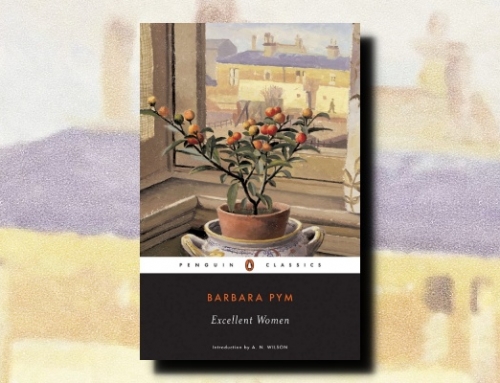
Thursday Afternoons
by Monica Dickens (1945)
Penguin (1949)
320 pp
For years I’ve dreamed of writing a review series featuring those wonderful vintage, numbered Penguin edition books. Thanks to the kind editors of The Mookes and the Gripes, here I am, ready and raring to go.
These wonderful books have an interesting history. You could say James Joyce was responsible for the foundation of Penguin Books. When British publisher Bodley Head refused to take on publication of Joyce’s controversial novel Ulysses, managing editor Allen Lane Williams formed a separate division, Penguin Books, in 1935. The Penguin imprint published not just the first U.K. edition of Ulysses over a decade after its original 1922 publication, but also the first unexpurgated U.K. edition of Lady Chatterley’s Lover, which led to the famous R v. Penguin Books Ltd, an obscenity trial that took place in late 1960. Penguin took a firm stance against censorship.
Their mission to provide inexpensive editions of classics and the best contemporary writing, Penguin organized the series books in numbered editions, color-coded by genre — the most iconic the orange and white covers for fiction. The books are highly collectible and, I’m happy to say, more readily available here in the UK than my native US.
 Thursday Afternoons, Penguin’s spine number 714, starts out a deceptively quiet novel, masquerading as a simple story about a respected doctor’s relationships in a small town practice. Dickens populates the novel with so many characters it almost requires a scorecard to keep track, recalling the enthusiastic style of her great-grandfather, Charles.
Thursday Afternoons, Penguin’s spine number 714, starts out a deceptively quiet novel, masquerading as a simple story about a respected doctor’s relationships in a small town practice. Dickens populates the novel with so many characters it almost requires a scorecard to keep track, recalling the enthusiastic style of her great-grandfather, Charles.
The wealthy residents of Dynsford, England, are proud of their handsome, city-educated doctor. His primary practice in London, Dr. Steven Sheppard travels to the town on Thursday afternoons. Though he entered the field with the best intentions, his effectiveness is frustrated by his good looks:
People were drawn to him, people whom he did not want. They told him things he didn’t want to know. They battened on his charm, sunning themselves in the chemical whatever it was which radiated from him. They forced him into the limelight, expecting too much of him, settling on him the obligation to which the attractive person is doomed.
His magnetism an integral plot point, Dickens paints her protagonist as almost an object of pity. It begs the question how much her own experiences as a WWII nurse inspired the doctor’s character, if she’s poking fun at the egos of doctors she personally knew. Swooned over and adored, Dr. Sheppard’s attitude occasionally becomes snarky and annoyed. He’s a man hampered by his own charisma.
What his patients don’t fully realize is Steven Sheppard is a husband near the end of his rope. Widely disliked for anti-social and awkward behavior, his wife Ruth can’t see how much she drains him. A popular man himself, no one relishes the fact an invitation to him also includes his wife.
The novel turns darker as Dickens delves more deeply into the slow implosion of the Sheppards’ marriage. Having lost their only child in a senseless, preventable way, each of them deals with the pain and not completely unjustifiable guilt:
. . . sometimes, for no reason, the emotions which he thought he had conquered would prove that he had only dammed them up at the back of his mind by bursting through and flooding him . . .
While Steven has his work to keep him occupied, his wife sits around in her housecoat, eating chocolate and sitting idle. A distracted woman of no substance, she’s content simply waiting for him to come home. He’d married her for her pretty figure and chestnut hair, her complete dependence on him flattering. Several years on, his immaturity has come back to haunt him in a big way.
Though his calling is medicine, Steven also aspires to write a novel. Jealous of anything shifting his focus from her, Ruth brushes it off as folly. It’s only after he meets an editorial assistant named Stephanie that he finds support for his work. When the relationship turns romantic, it soon becomes obvious it has the potential to put what’s left of his marriage in jeopardy.
With Stephanie he feels alive and happy, for the first time in a long while:
She radiated some chemical affinity to his own personality that he had never found in any of the women who had hankered after him. She made him happy, and gave him something to look forward to.
It’s an act of mercy that proves pivotal to the story. Referred by a mutual acquaintance, Mrs. Garard comes to the doctor for help. She tells him she’s running from her husband, and that her son Tom, recovering from pneumonia, requires a doctor’s referral to a rest home where he can recover. In the meantime, his mother will set up a new home for them nearby. His decision to arrange for the child’s care will prove disastrous in ways no one could have guessed.
Thursday Afternoons is a surprising book. The move from a simple tale of village life to an increasingly dark exploration of Dr. Sheppard’s complex psyche executed smoothly by a writer possessing deft skill. It can be a slow novel, made overly long via scenes extraneous to the main plot, but its strength is in its ability to convincingly portray the life a man who appears to have everything, suddenly and shockingly losing it all.
Though I can’t honestly say Thursday Afternoons is one of the best books I’ve ever read, its good qualities — coupled with my interest in the spirited Monica Dickens — make me want to read more of her work. Several of her other titles are in print, and I’m hoping to track them down in the process of re-building my decimated library.
In the meantime, there are more orange and white beauties on my shelf waiting to be read. Next up, a title by a peripheral member of the Bloomsbury group: David Garnett, husband of Angelica. Having read another extraordinary novel by him, I have very high hopes it will prove to be a great read.
About Monica Dickens:
Charles Dickens’s great-granddaughter was a highly prolific rebel. Despite an upper-class upbringing, following her presentation as a debutante Monica Dickens chose to go into domestic service as a cook and general servant. Her later experiences as a WWII nurse provided the background for her second novel, Thursday Afternoons (1945).
Dickens went on to write more than two dozen novels for adults, as well as three series for children, before dying in 1992 aged 77.








Leave a Reply